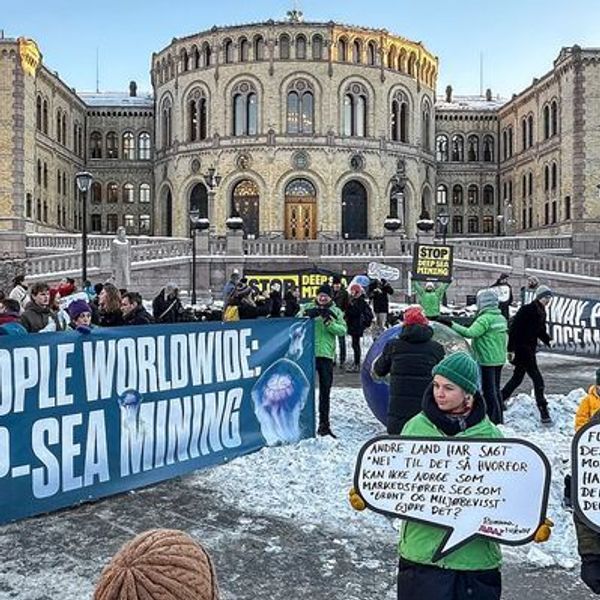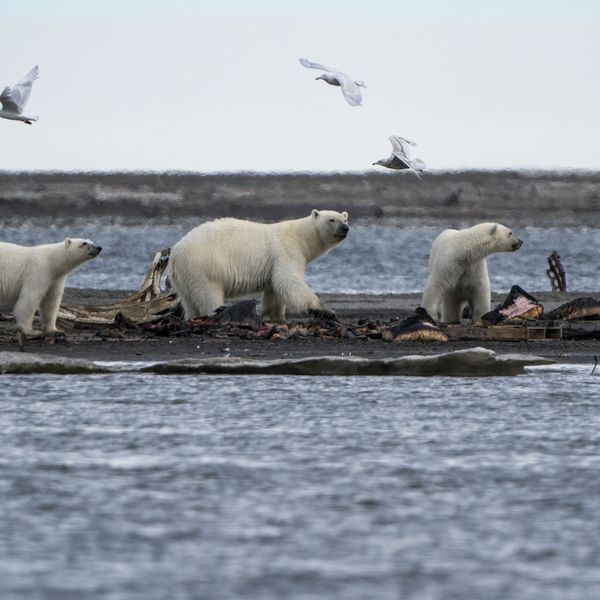Environmentalists are sounding the alarm after the Obama administration unveiled the first-ever guidelines for drilling in the Arctic.
Released by the Bureau of Safety and Environmental Enforcement (BSEE) and the Bureau of Ocean Energy Management (BOEM) on Friday, the proposed guidelines are being touted as a protective measure to "ensure that future exploratory drilling activities on the U.S. Arctic Outer Continental Shelf (OCS) are done safely and responsibly, subject to strong and proven operational standards."
However, as green groups were quick to note, the best way to prevent a catastrophic oil spill from threatening the dangerous and pristine waters of the Arctic is to issue an outright drilling ban in that region.
"There is no such thing as safe or responsible offshore drilling in the Arctic, and the federal government knows it," said Friends of the Earth climate campaigner Marissa Knodel. According to the government's own environmental analysis, one lease sale in the Chukchi sea poses a 75 percent chance of a large oil spill, with no effective method for cleaning up or containing it.
"Even with new standards the chances of an oil spill are high, as is the threat to our climate if we fail to heed scientists' warnings to keep these dirty fuels in the ground," Dan Ritzman, Alaska Program Director for Sierra Club's Our Wild America campaign, said in a statement following the announcement.
The proposed guidelines focus solely on offshore exploration drilling operations within the Beaufort and Chukchi Seas. They seek to codify specific requirements through all phases of the process, including mobilization, drilling, maritime transport and emergency response.
The Arctic-specific guidelines were issued in direct response to the grounding of Royal Dutch Shell's Alaskan Arctic drilling rig, the Kulluk, in January 2013.
Despite having been forced to cancel its Arctic drilling operations the past two years because of related safety violations, Shell is planning to return to the Arctic this summer with plans to dig a series of exploratory wells and to deploy two rigs in the Chuckchi sea, the Guardian reports.
In an official statement announcing the proposed rules, BSEE and BOEM note that drilling in the Alaska OCS is an "integral part of the Nation's 'all-of-the-above' domestic energy strategy." And Secretary of the Interior Sally Jewell commended the guidelines, saying: "The Arctic has substantial oil and gas potential, and the U.S. has a longstanding interest in the orderly development of these resources."
Despite these assurances, environmental groups warn that such regulations only further entrench U.S. dependence on fossil fuels.
"This government sanction of 'safe' drilling will harm future generations by unleashing more of the dirty fossil fuels that are already warming Alaska twice as quickly as the rest of the nation," FOE's Knodel added.
Earlier this month, Greenpeace launched an online campaign calling on supporters to share their "worst joke" in a bid to show Shell that "Arctic drilling is no joke."


